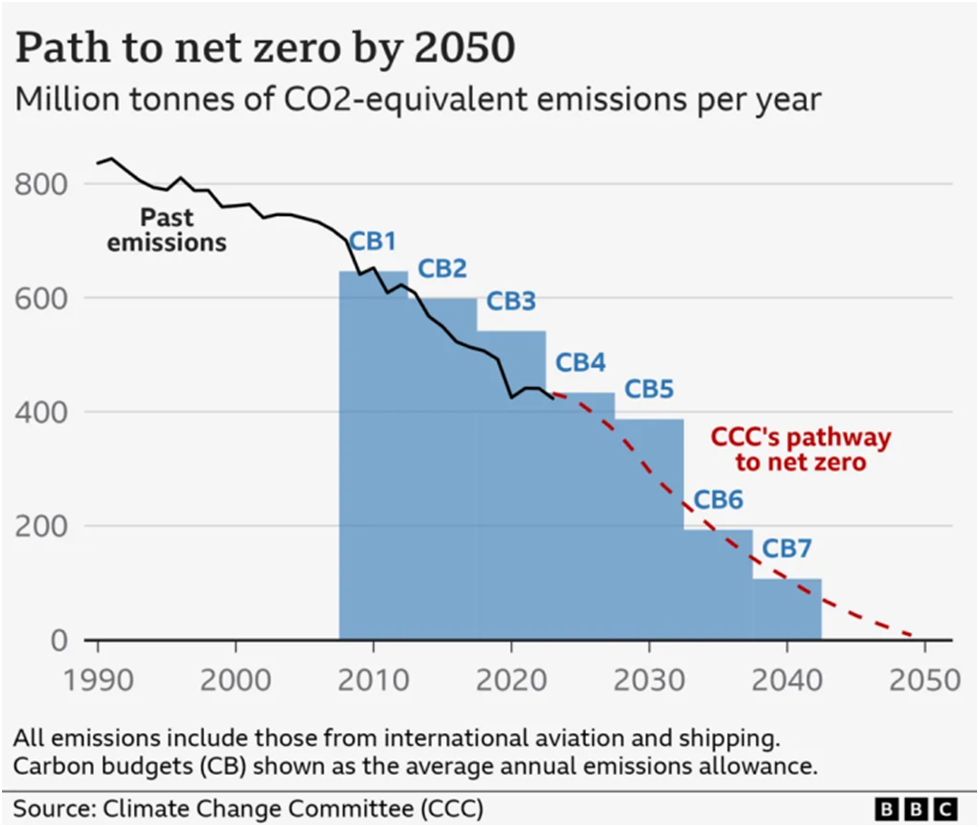Mired in Political Pretense
The article from the British Broadcasting Corporation (BBC), “How the political consensus on climate change has shattered”, clearly illustrates that climate change is a political, and not scientific issue, In 2019, the United Kingdom was the first developed country to pass Net Zero carbon dioxide emissions legislation. Obviously a political issue because in the story the BBC writes, “. . . reaching net zero is fast becoming a political dividing line”. This is quite a stretch since it’s always been the case; however, the BBC is a foremost leftist communicator.
Illustrating that climate change was a legitimate concern, my latter accusation is evidenced by the BBC’s moronic statement, “Thousands of people had joined Extinction Rebellion marches and the then-teenage activist Greta Thunberg was so influential she was invited to address MPs in Parliament.” They cite as validation of climate change one of the world’s most radical protest groups and Greta Thunberg, who has been silent from her annoying style for quite some time.
The entire article mentions no science that politicians should rely on, because the largest drivers and motivations of politicians are votes. Acquiring votes through the mechanism of fear is a progressive’s acceptable game”.
The only graph appearing in the article is of the reduction in carbon dioxide emissions considered necessary to achieve Net Zero. This is also presented in pretense since the 100s of millions of tonnes (1.102 tons) in the decrease is intended to appear massive when in reality it is simply a diminutive portion of the carbon dioxide released into the atmosphere by nature. Furthermore, it shows the emissions of the entire world, of which the United Kingdom is in 22nd place at a mere 0.8%.
In the linked article, it was proven, “Last year the UK Met Office was shown to be inventing long-term temperature data at 103 non-existent weather stations. The MET, previously called the Meteorological Office, is the United Kingdom's government weather and climate service. UK Politicians do not include that fact in their NET Zero parliamentary discussions.
Miring British politics further is that 13 political parties engage in legislative action in the House of Commons – essentially the UK’s congress. Like Canada’s Senate, the members to the House of Lords are appointed and, while they scrutinize and propose amendments to legislation enacted by the House of Commons, their involvement is relatively insubstantial or ineffectual.
Challenging climate change as a bona fide concern, Deputy Leader Richard Tice of the Reform UK party says, "On the doors, people are talking about immigration but the next thing they talk about is the price of everything, the bills, the cost of living. When you drill into it, the message is getting across that the increase in the cost of living is significantly due to the increase in energy costs.”
These genuine concerns appear to be the same everywhere, yet the progressives fight traditional energy-creating fuels, touting instead renewables that have been proven to be fully unworkable. They wage war against nuclear energy, which produces no CO2.
This all illustrates that real people outside of wealth, privilege, and political ideologies have real worries and anxieties, and not those issues produced by an abstract, utopian world conceived by the progressives.
The progressive left, in general, seems to be emotional followers of all idealist matters and are not capable of critical thinking on subjects outside of their partisan beliefs. They have a strict tendency to get devotedly grounded in whatever progressive ideology is presented, without factual evidence.





